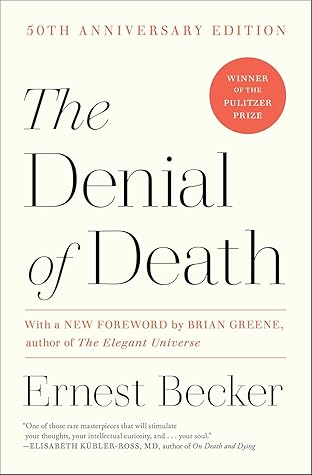More on this book
Community
Kindle Notes & Highlights
Our desire for the best is the cause of the worst.
At what cost do we purchase the assurance that we are heroic?
Sibling rivalry is a critical problem that reflects the basic human condition: it is not that children are vicious, selfish, or domineering. It is that they so openly express man’s tragic destiny: he must desperately justify himself as an object of primary value in the universe; he must stand out, be a hero, make the biggest possible contribution to world life, show that he counts more than anything or anyone else.
We disguise our struggle by piling up figures in a bank book to reflect privately our sense of heroic worth. Or by having only a little better home in the neighborhood, a bigger car, brighter children. But underneath throbs the ache of cosmic specialness, no matter how we mask it in concerns of smaller scope.
The fact is that this is what society is and always has been: a symbolic action system, a structure of statuses and roles, customs and rules for behavior, designed to serve as a vehicle for earthly heroism.
It doesn’t matter whether the cultural hero-system is frankly magical, religious, and primitive or secular, scientific, and civilized. It is still a mythical hero-system in which people serve in order to earn a feeling of primary value, of cosmic specialness, of ultimate usefulness to creation, of unshakable meaning.
The crisis of modern society is precisely that the youth no longer feel heroic in the plan for action that their culture has set up.


